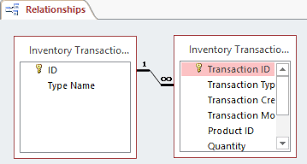supportsvc
Technical User
Hello,
I am trying to figure how to find dates in TransactionDate that falls into the PeriodEndingDate
So company does not use the calendar year for their fiscal year.
TransactionDate contains dates when the invoice transaction posted.
Each FiscalPeriod for each year doesn't necessary end on the last day of the month.
How do you set two new fields to look at the TransactionDate and if it falls into the PeriodEndingDate show
1. the FiscalYear
2. the FiscalPeriod
As shown in the Fiscal table?
So from the TransactionDate to determine the Fiscal information if the dates fall into the PeriodEndingDate
These are their Fiscal Periods
FiscalYear FiscalPeriod PeriodEndingDate
2020 03 6/30/2019
2020 04 7/28/2019
2020 05 8/25/2019
2020 06 9/29/2019
2020 07 10/27/2019
2020 08 11/24/2019
2020 09 12/29/2019
2020 10 1/26/2020
2020 11 2/23/2020
2020 12 3/29/2020
2021 01 4/26/2020
2021 02 5/24/2020
2021 03 6/28/2020
2021 04 7/26/2020
2021 05 8/23/2020
2021 06 9/27/2020
2021 07 10/25/2020
2021 08 11/22/2020
2021 09 12/27/2020
2021 10 1/24/2021
2021 11 2/21/2021
2021 12 3/28/2021
I am trying to figure how to find dates in TransactionDate that falls into the PeriodEndingDate
So company does not use the calendar year for their fiscal year.
TransactionDate contains dates when the invoice transaction posted.
Each FiscalPeriod for each year doesn't necessary end on the last day of the month.
How do you set two new fields to look at the TransactionDate and if it falls into the PeriodEndingDate show
1. the FiscalYear
2. the FiscalPeriod
As shown in the Fiscal table?
So from the TransactionDate to determine the Fiscal information if the dates fall into the PeriodEndingDate
These are their Fiscal Periods
FiscalYear FiscalPeriod PeriodEndingDate
2020 03 6/30/2019
2020 04 7/28/2019
2020 05 8/25/2019
2020 06 9/29/2019
2020 07 10/27/2019
2020 08 11/24/2019
2020 09 12/29/2019
2020 10 1/26/2020
2020 11 2/23/2020
2020 12 3/29/2020
2021 01 4/26/2020
2021 02 5/24/2020
2021 03 6/28/2020
2021 04 7/26/2020
2021 05 8/23/2020
2021 06 9/27/2020
2021 07 10/25/2020
2021 08 11/22/2020
2021 09 12/27/2020
2021 10 1/24/2021
2021 11 2/21/2021
2021 12 3/28/2021


![[ponder] [ponder] [ponder]](/data/assets/smilies/ponder.gif)